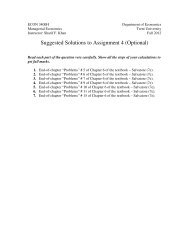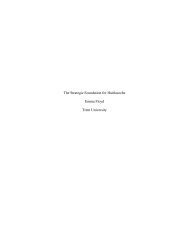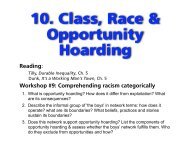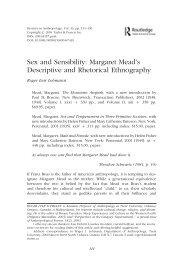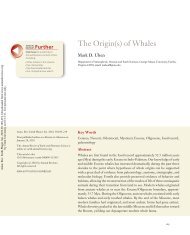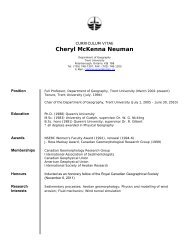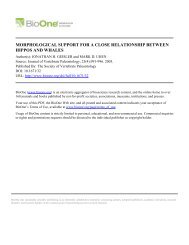REO FORTUNE'S PSYCHOLOGICAL THEORY OF CULTURAL ...
REO FORTUNE'S PSYCHOLOGICAL THEORY OF CULTURAL ...
REO FORTUNE'S PSYCHOLOGICAL THEORY OF CULTURAL ...
You also want an ePaper? Increase the reach of your titles
YUMPU automatically turns print PDFs into web optimized ePapers that Google loves.
282 Pacifi c Studies, Vol. 32, Nos. 2/3—June/Sept. 2009<br />
whom he regretted having hated during the war. Fortune was an active,<br />
dynamic participant in his society and culture. He was enculturated to<br />
British nationalism, and then, critically assessing official and majority views,<br />
he broke with them and sought to convince others to change their views<br />
as well. He did this not only as a student, but also as an author. Fortune’s<br />
passages are infused with his controversial views in a remarkably frank and<br />
open manner.<br />
The Dream of the Library Vandalism<br />
The second of Fortune’s shared dreams expressed anxieties over his re -<br />
sponsibility as a student employee for his college library’s late operation<br />
and closing. In the dream, he acted in his actual capacity at his college<br />
library at night. He secretly let in some friends who, to his horror, smashed<br />
the stained-glass windows and left. Fortune then danced barefoot with the<br />
vandals in celebration. One of them remarked that his reputation was such<br />
that he had nothing to lose, and Fortune became anxious that he, in fact,<br />
did have reputation and position to lose. Contextualizing his narrative,<br />
Fortune wrote that the chief librarian had recently reprimanded him for<br />
forgetting to turn out the lights, and though Fortune felt intimidated, he<br />
exhibited nonchalance, and later feared that his attitude would be reported<br />
to higher authorities (Fortune 1927: 23–28).<br />
In this narrative, we see a conflict between wanting to rebel while<br />
continuing to value tradition and order as a foundation for life. He wanted<br />
reputation and status within proper society, yet he also wanted to cut loose.<br />
His dilemma, it would seem, was how to let his individuality, in Burridge’s<br />
(1979) sense of a critical and exemplary reshaper of society, shine without<br />
destroying the order that he loved. His very interest in dreams that<br />
highlight contrarian views is a symptom of this.<br />
The Dream of the Library Disorder<br />
In the next dream, Fortune was again in the library, engaged in an argument<br />
about religion with the chief librarian. While they were distracted, a<br />
student gave a loud speech in favor of agnosticism, drawing a crowd.<br />
Fortune saw this as a threat to the peace and order of the library, which it<br />
was his job to maintain. After silencing the speaker, he stood on a chair and<br />
gave his own soapbox speech on the “great truth and advantages of the<br />
Christian religion” (Fortune 1927, 41). Fortune recounted this dream<br />
because in waking life he had, in fact, rejected Christianity and become an<br />
agnostic. His reasons for this were not because he found supernatural<br />
explanations untenable. Rather, he reasoned that believing in Christianity<br />
pacs-32-02-06.indd 282 9/7/2009 2:32:33 PM



